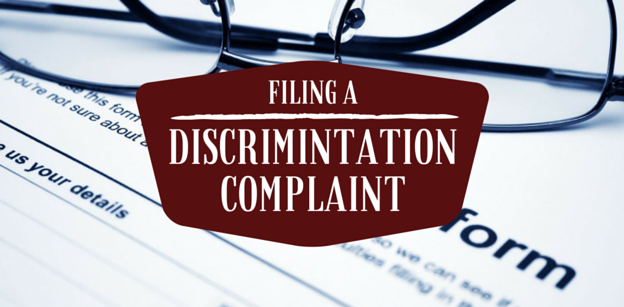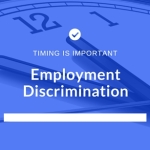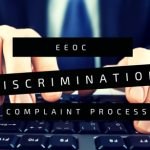While it is obviously not the optimal place to find oneself in, there are situations when an employee is forced into the position of filing a discrimination complaint against a current employer with the Texas Workforce Commission (TWC) and Equal Employment Opportunity Commission (EEOC). It is an employee’s legal right to file a complaint of discrimination if he believes that his employer is discriminating or retaliating against him. While your employer cannot legally fire you for having filed the complaint, it can definitely create a strained relationship and consternation between the two parties. So, what is an employee supposed to do after filing a complaint of discrimination against his employer?
Do not do anything to get yourself fired!
The Texas Labor Code and Title VII of the Civil Rights Act of 1964 (federal anti-discrimination law) both prohibit an employer from terminating or otherwise retaliating against an employee for filing a complaint of discrimination with the TWC or EEOC. However, this does not mean that you cannot be fired after you have filed a complaint of discrimination. An employer still has the right to fire an employee if the employee violates company policy or is not performing his or her job duties. Therefore, it is always important to be extra vigilant about your job duties and performance following the filing of a discrimination complaint. You never want to give your employer a reason to fire you.
In addition to fulfilling all of your job duties and continuing to successfully perform your job, it is also important to understand any company policies to ensure that you do not violate one. For example you want to be careful to meet any attendance guidelines, maintain appropriate relationships with co-workers, and always use appropriate language when communicating at work. Reviewing your employee handbook or company policies can also provide you helpful information about what you should and should not do in the course of gathering evidence of the discriminatory or retaliatory treatment. You may want to record a conversation that you have with HR or your supervisor. While there is no state law in Texas that would prohibit you from recording a conversation that you are a party to, a company may have a policy that prohibits its employees from doing so.
Other Helpful Tips
You should probably assume that your employer is keeping a close eye on you if you have filed a complaint of discrimination against them. Be extra vigilant about discussing your discrimination complaint with co-workers, and do not send emails to your attorney from your work computer or work email (unless that is your only option). You should also do what you can to document anything that is said or takes place which you believe provides further evidence for your discrimination or retaliation claim.
As a final resort, if you are uncomfortable at work or unsure of what you can or should do at work, you should reach out to your attorney or contact an employment attorney to discuss the matter as soon as you can. While you do not have the right to bring your attorney to meetings at work, you can always attempt to contact him/her to know your legal rights.









